The Egypt Files: Introduction
"...as my eyes grew accustomed to the light, details of the room within emerged slowly from the mist, strange animals, statues, and gold - everywhere the glint of gold." ~ Howard Carter
One-time or recurring donations can be made at Ko-Fi.
You can listen to me read this story here:
This is the continuing story of my time living in Luxor, Egypt before and during the pandemic. You can find the Introduction here. Considering the horrors of October 7th and the war in Gaza, the truth of what it’s like to live under Sharia Law is an important story to tell.
Each nightfall, I stood in the garden and listened. Bats fluttered in the mango tree. Muffled cries of sheep and cows echoed through the streets. Dogs barked and children laughed. Soon the muezzin would make the call to prayer.
It would never sound as it had when I was a child; the muezzin standing atop the minaret, arms outstretched, his clear voice carrying across the city. Now it came from loudspeakers, probably prerecorded. But I was glad I had the memory, and I loved the sound still.
I checked the two gates to make sure they were securely locked, and the bolts drawn. Last night, I’d heard a car pull up and someone had fiddled with the gate, trying to get in. I knew who it was. Mohamadin’s best friend and business partner, Bango. The previous afternoon, he’d banged on the gate, demanding entrance. I’d let him in, and he had paced in the garden, agitated and puffing hard on a cigarette.
“Why you do this? Why you ruin my life? Just give the money, why you do all this trying to make us sign contract? You no trust us? You promise to give the money. You think you can do nothing now? You will do it!”
I had promised no such thing. A month or so previously, Mohamadin and Bango had asked me to go into business with them to buy the property where I was now living. I loved the property. It had two domed houses with rooftop terraces and a garden, as well as a large walled area behind it where we could plant vegetables and fruit trees and I could build a gym. All was in disrepair but oh my, it could be such an oasis of beauty. I imagined opening it up for writers’ residencies. What writer wouldn’t want to come to such an inspiring place, to write?
Maybe, I might even settle down here and stop my wandering at last.
Mohamadin and Bango had presented me with a contract, offering me a third ownership for a mere $16,000. They had already paid $50,000. Indeed, I had seen the bags of money with my own eyes. They had counted it in my villa before riding off on Mohamadin’s motorcycle to give it to the current owner.
It looked almost comical, them riding off into the night, clutching those bags of money. To think they still conducted business like this, as if they lived in a bygone era. At the same time, I felt uneasy. They always had an excuse as to why they could not introduce me to the owner of the property. It wasn’t appropriate for a woman to negotiate these deals. If he knew a foreign woman was investing, he would raise the price. I never saw their contract with the owner. I never saw any proof that the property was even for sale. And yet, they expected me to sign a contract with them and hand over $16,000.
By this point, I had already been living in Luxor for two years and had heard many terrible stories of women losing everything in deals like this. The women, enamored with local men, thought they were signing contracts where they owned the property, but they owned nothing. I’d even heard that properties would be sold over and over to one woman after another. After the first woman had invested everything into the property, had bought a tourist van, had paid for the heart operation of her husband’s mother, the wedding for his brother, or whatever, once she had nothing left, she would be discarded for someone else. Without money, she was useless. She became a pariah, tormented, terrified, abused until at last, she fled the country. If she still had any money left to do so. Otherwise, she was trapped, like the ghosts that haunted the tombs.
There is a saying in Luxor that a woman who has married a local man can only leave with the skin on her back. Everything else will have been taken from her.
The men of Luxor are obsessed with their contracts, both for marriages, called “Orfi”, and for real estate deals. The contracts are a way to trap foreign women. Getting them to sign on the dotted line is an art passed down from father to son. The real estate business is run by rival mafioso lords. It relies on an intricate web of interpreters, lawyers, real estate agents and police officers, all connected through blood going back hundreds upon hundreds of years; back to when their ancestors were grave robbers, inhabiting the abandoned village of Deir el-Medina where the artisans and tomb builders had originally lived.
Some of these robbers grew fabulously wealthy and their descendants became the five most powerful families controlling the west bank today.
Luxor grew out of the ancient city of Thebes, capital of Egypt during the period of the New Kingdom (c.1570-c.1069 BCE). The Greeks referred to Thebes as Diospolis Magna, or 'The Great City of the Gods'. Thebes was an important worship center of Amun, the god of sun and air, whose name means "the hidden one," "invisible," "mysterious of form." Unlike most other gods, he was considered Lord of All who encompassed every aspect of creation.
Thebes evolved on both sides of the Nile River with the temples of Luxor and Karnak on the east bank and the vast necropolis on the west. The necropolis includes the Valley of the Kings, the Valley of the Queens, the temple of Ramesses II, the temple of Ramesses III, and the grand temple complex of Queen Hatshepsut. It is in the Valley of the Kings that Howard Carter discovered King Tutankhamen’s tomb. Although, I heard a fascinating variation on this tale while I lived there about a local boy who told Carter the secret of where the tomb was located.
If I close my eyes, I can still see the temple of Karnak on that night when the gods displayed their anger. I had been in Luxor not more than a month. I was with my niece, Tori, who was studying archeology and had come to visit me. We went to see the light show at the temple. Just as the show started with mystical music and a disembodied voice recounting history, a wind began to blow. Dust rose around us, snaking through the columns. At first, we thought it was all part of the show. But the wind moaned louder as the dust clouds billowed, muffling the sounds of the music and the narrator.
I looked up at the massive pillars that were now almost obliterated from view and felt the gods’ displeasure. All these tourists, gaping without understanding. We didn’t belong here. I gestured to Tori to follow me. We were the first to turn our backs on the temple and run away, heading back to the shelter of the ticket center.
It didn’t take long for the others to follow. The wind was now screaming, the dust biting into our skin like a million tiny bullets causing excruciating pain. In those moments, I understood why the people of these desert lands wore flowing robes and scarves. I took my scarf and covered my face, and Tori did the same.
Once inside the shelter, we huddled there thankfully, coughing and spluttering. Our nostrils and mouths were gritty with sand. Soon everyone was squashed inside the wooden structure having been directed by guards to come there. The others were part of a German tour group. A bus was coming to take them to their hotel. What would we do?
I called Mohamadin and he said not to worry. He would send a taxi to take us to the ferry and told me where to meet it.
Tori and I pushed our way through the crowd. We weren’t supposed to leave the shelter, but we did, running through the continuing storm to where the taxi driver waited, just as Mohamadin had promised he would. He drove us to the dock. Hundreds of people were waiting there. No boats were allowed to cross, the wind was too strong, the visibility too low.
We waited in the taxi as our driver conversed with Mohamadin. He then drove us to a remote spot further down the river. There we found Mohamadin’s taxi boat waiting for us, steered by Bango’s younger brother, Ali.
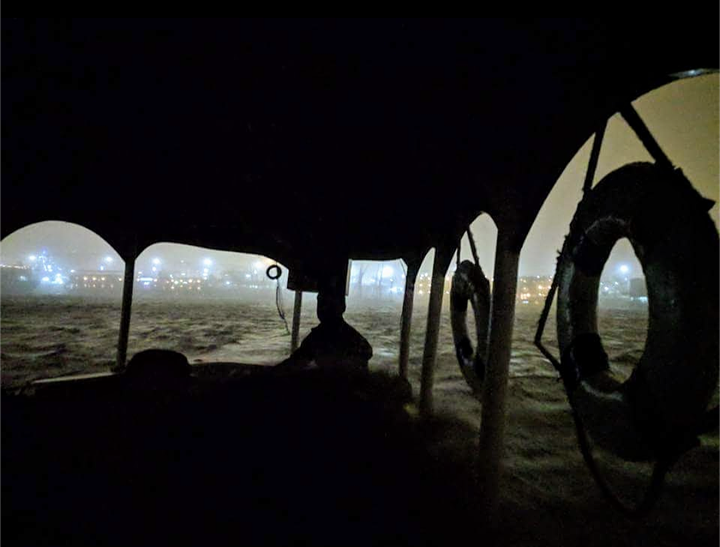
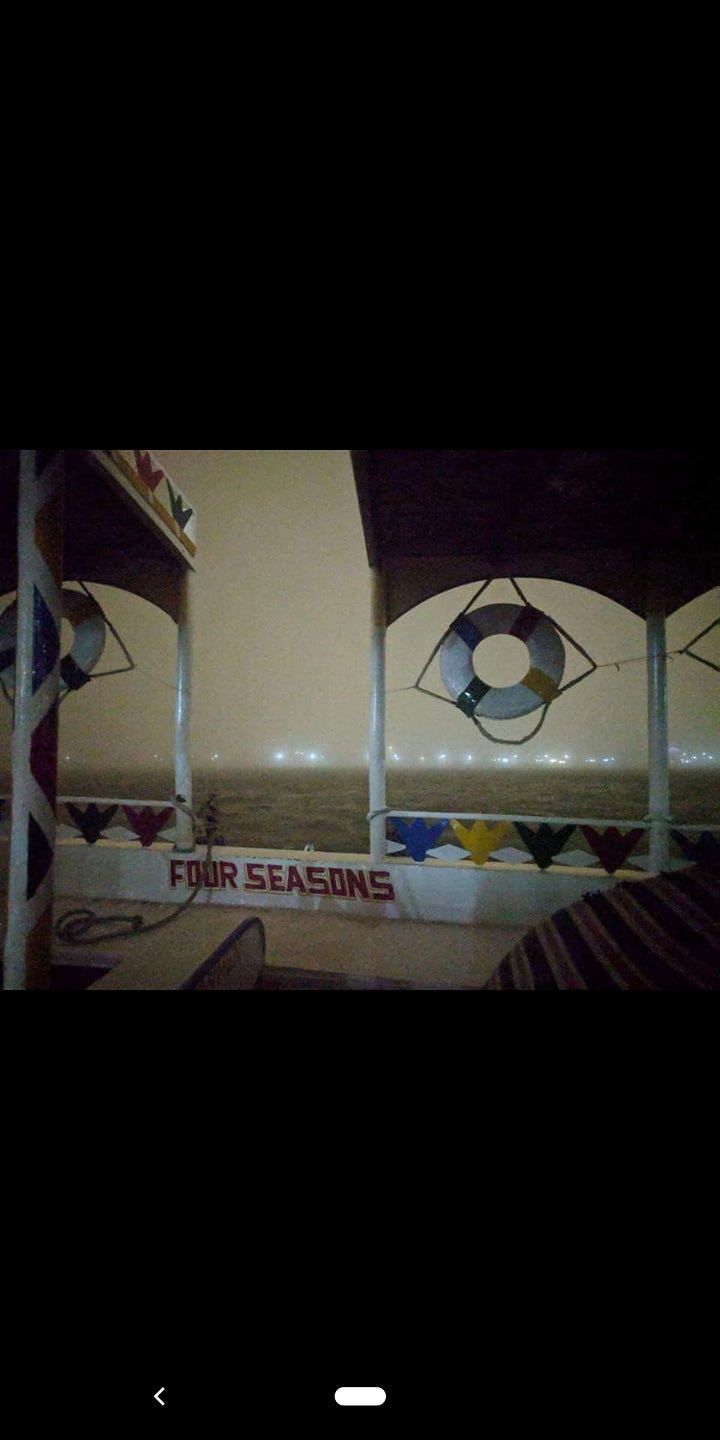
We saw no other boat on that crossing. I felt elated, watching as the smear of lights on the far bank grew closer, the water wildly tossing the boat from side to side. We made it safely back to the Sandal, Amira, the boat I was living on at the time. The wind and sand were still blowing fiercely, and Ali helped us climb onto the deck. I thanked him profusely and gave him an enormous tip. Then, we went down below and shut out the storm. That night I fell asleep to the sound of the angry gods, waves tossing the boat from side to side.
That wasn't the first time Mohamadin had come to my aid, and it wouldn’t be the last. Why wouldn't I trust a man who was so caring and went to such lengths to ensure my safety and the safety of my niece?
And yet, when it came time to invest in the property, I didn’t trust him enough to sign on the dotted line. My daughter is a lawyer. We came up with a plan. She drew up a contract for them to sign, protecting my interests. If they were willing to sign my contract, then I would know I could trust them.
I will never forget their expressions of disbelief when I presented them with a contract that they should sign. I don’t think a woman had ever done that before. It was always the other way around. Contracts in Arabic drawn up by the men’s real estate agents, looked over by their lawyers, interpreted by their interpreters. Now, they would have to translate my contract, clearly stating my ownership in the property and the obligation that the money would be spent exactly as they had promised it would.
They became frantic. I was trying to cheat them. How so, I said, this was business. I was just protecting my interests like any sane person would do. No, no! I was conspiring against them. I was a con artist!
The more they accused me of this, the more obvious it became that they were the ones trying to cheat me. The night I heard Bango rattling the gate, was when I knew I had to get out. I bought a plane ticket, but it didn’t leave for five days. Five days of harassment and fear. And constant vigilance.
The night before I left, I climbed up to the rooftop terrace, as I always did. I loved Luxor still; it was so beautiful. I wished I didn’t have to leave. I was heartbroken. One last time, I watched the dying rays of sunlight bathe the minarets and village rooftops in golden light before descending beneath El Qurn Mountain. The family across the street stood on their balcony enjoying the sunset as well. We waved and smiled at each other.
The call to prayer swelled from the nearby mosques and echoed across the Nile. Luxor Temple stood awash in silver light. A dahabiya passed on its way to Aswan, lights twinkling on the decks and in the cabin windows. I could hear music and laughter. People were no doubt dancing and drinking, for one glorious week able to forget their lives in some cold and cloudy northern country, donning flowing robes and smoking shisha, losing themselves in a sensual long-gone era that was no more than a dream. But oh, that dream was such a powerful one that it could seduce a person right into it until they no longer distinguished between the dream and reality. The delusion was overpowering, even when it was shown to be nothing but a lie.
I turned back to the west and watched the last splashes of pink and purple melt beneath the horizon. A few stars appeared and a big red moon.
I thought of Howard Carter’s words as he discovered the Tomb of Tutankhamen:
“...as my eyes grew accustomed to the light, details of the room within emerged slowly from the mist, strange animals, statues, and gold - everywhere the glint of gold. For the moment - an eternity it must have seemed to the others standing by - I was struck dumb with amazement, and when Lord Carnarvon, unable to stand the suspense any longer, inquired anxiously, 'Can you see anything?' it was all I could do to get out the words, 'Yes, wonderful things.”
Yes, I had experienced so many wonderful things. And such terrible truths. I had learned what I wanted to find out and it had been hard, but I didn’t regret any of it.
And now, I was saying good-by. But somehow, I knew I would be back. Much to Mohamadin’s and Bango’s displeasure. I would be back.
To be continued… two years earlier…




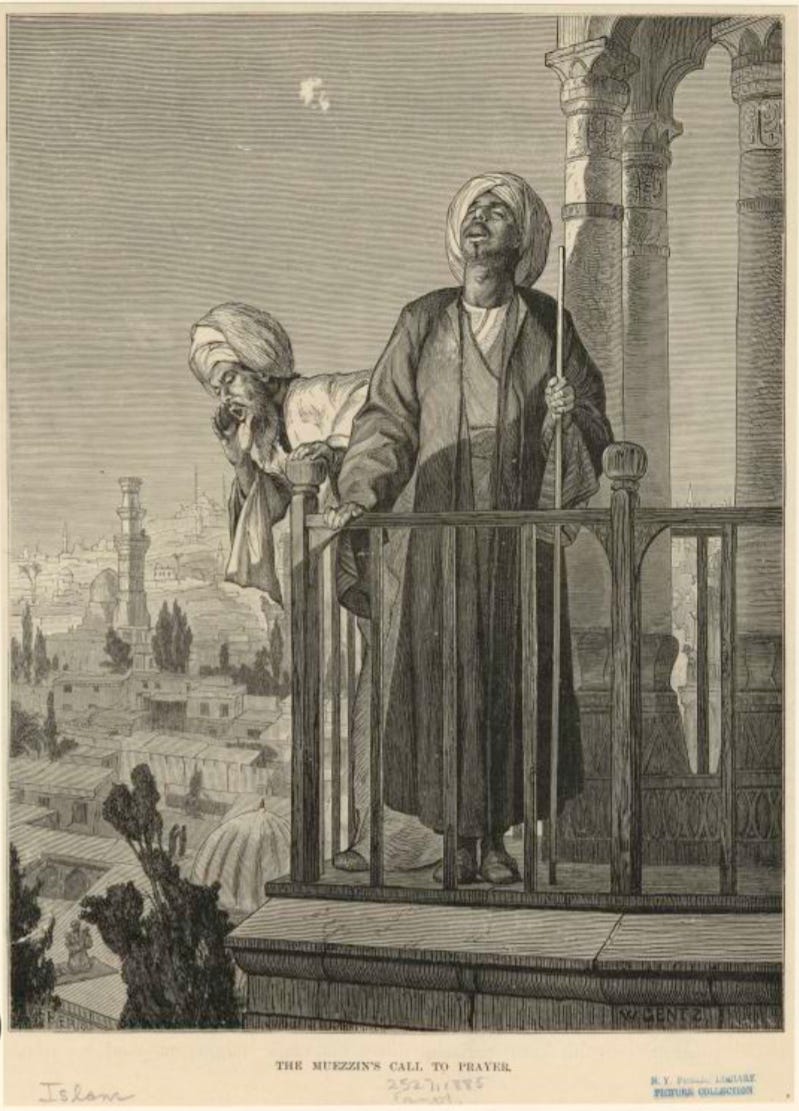
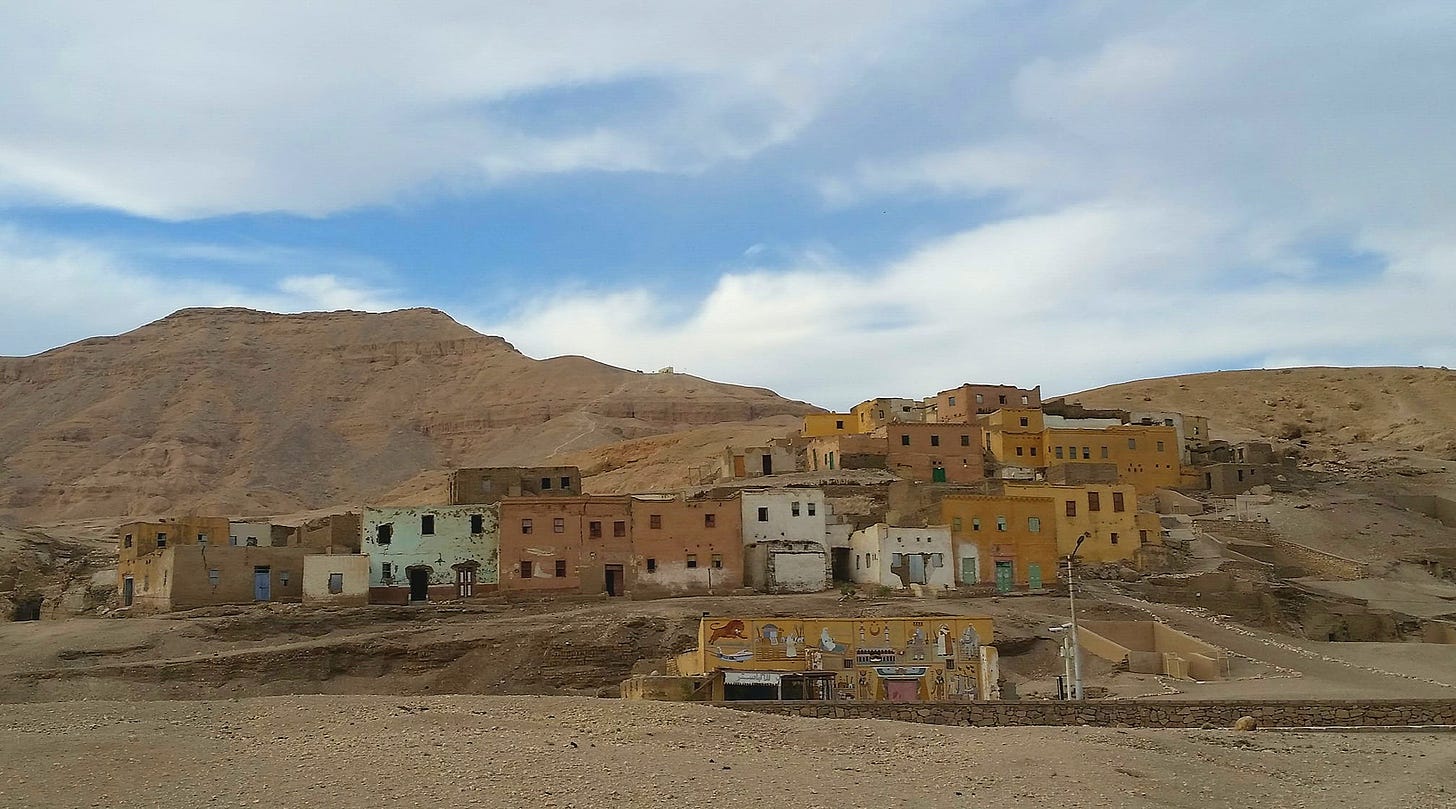
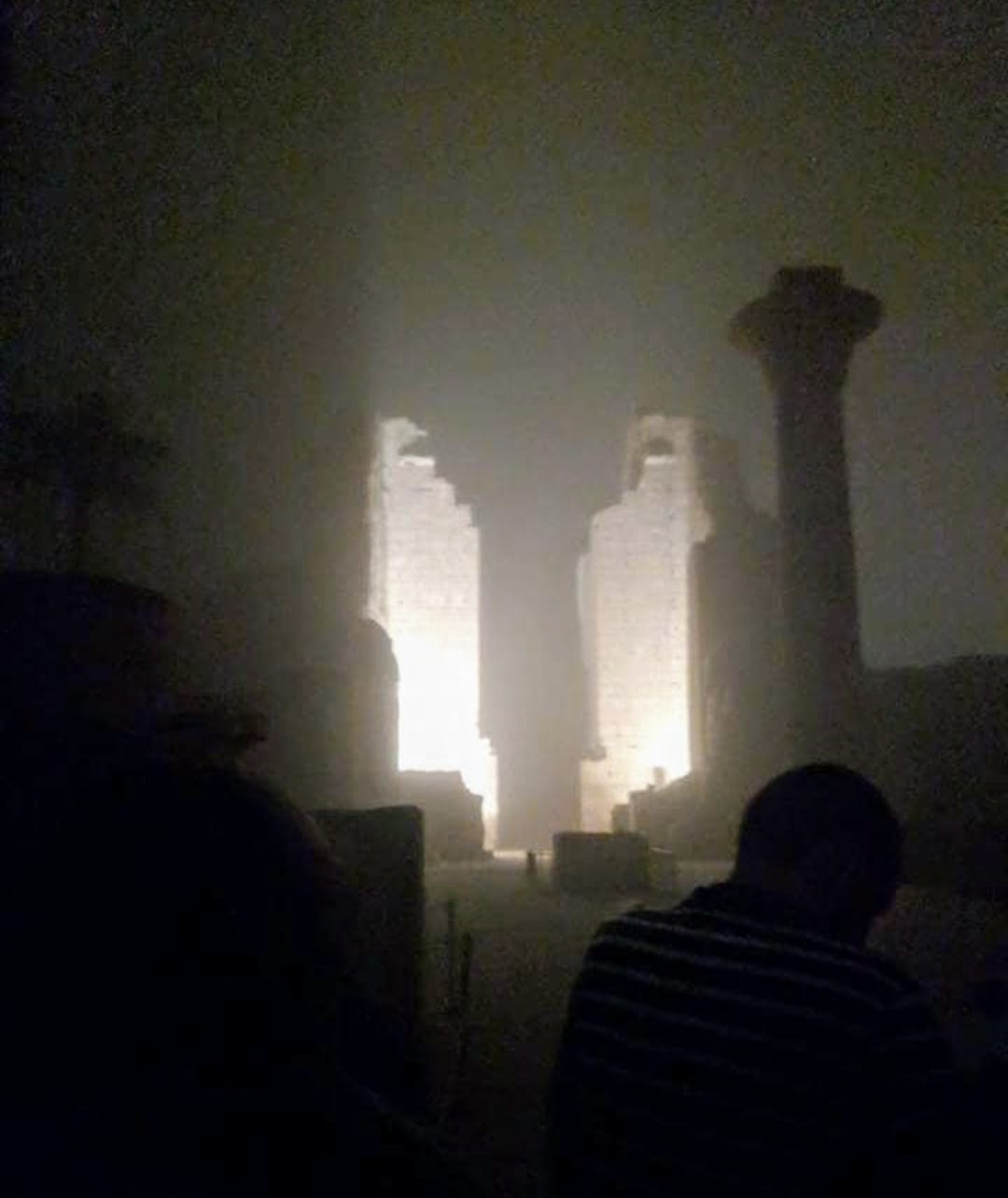
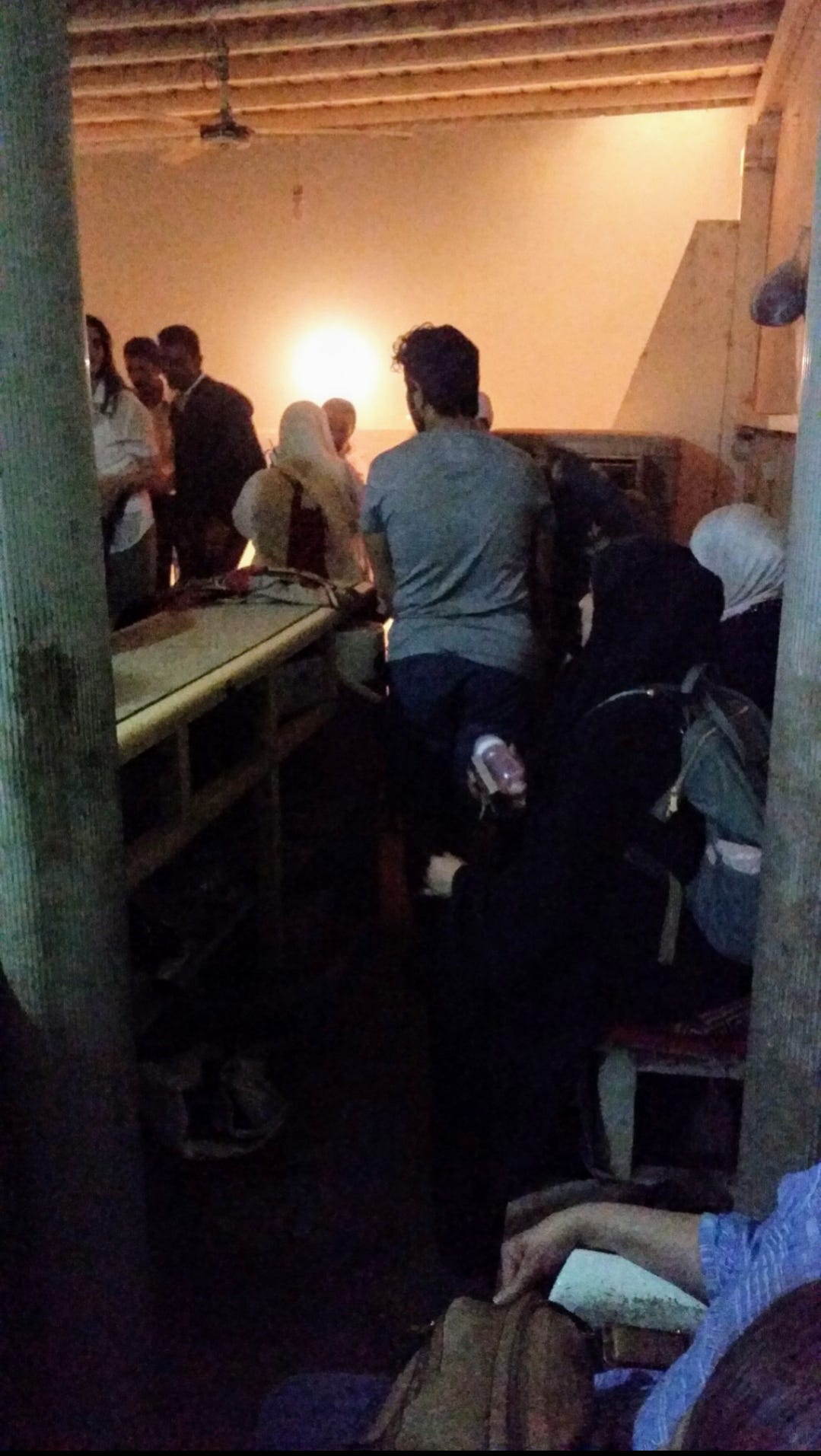
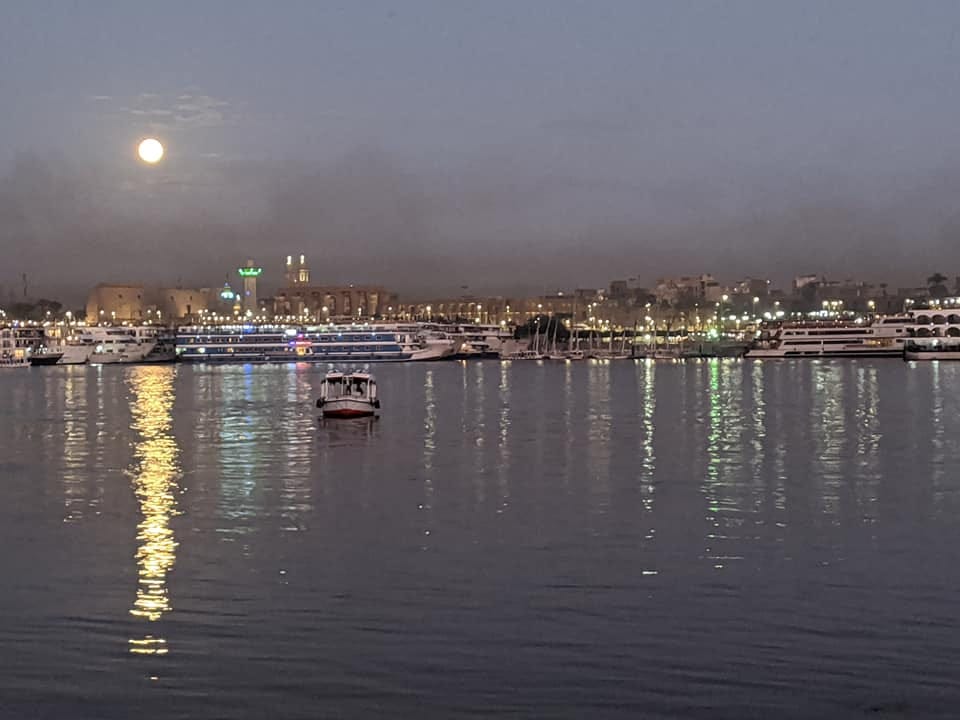
So glad you have decided to share your stories of living in Egypt with us. Thanks! Looking forward to the rest 😁
tellin' it now on the side of relative safety is reassurin' but puttin' off such hindsight an' imagining the risk you were in then, I'd say yer fascinatin' story reminds me of all the the long-ago ancient tales of thieves, danger, an' dastardly intrigue set in a mystical an' magical land--where carpets fly--as do daggers! (lookin' forward to hearin' more!)